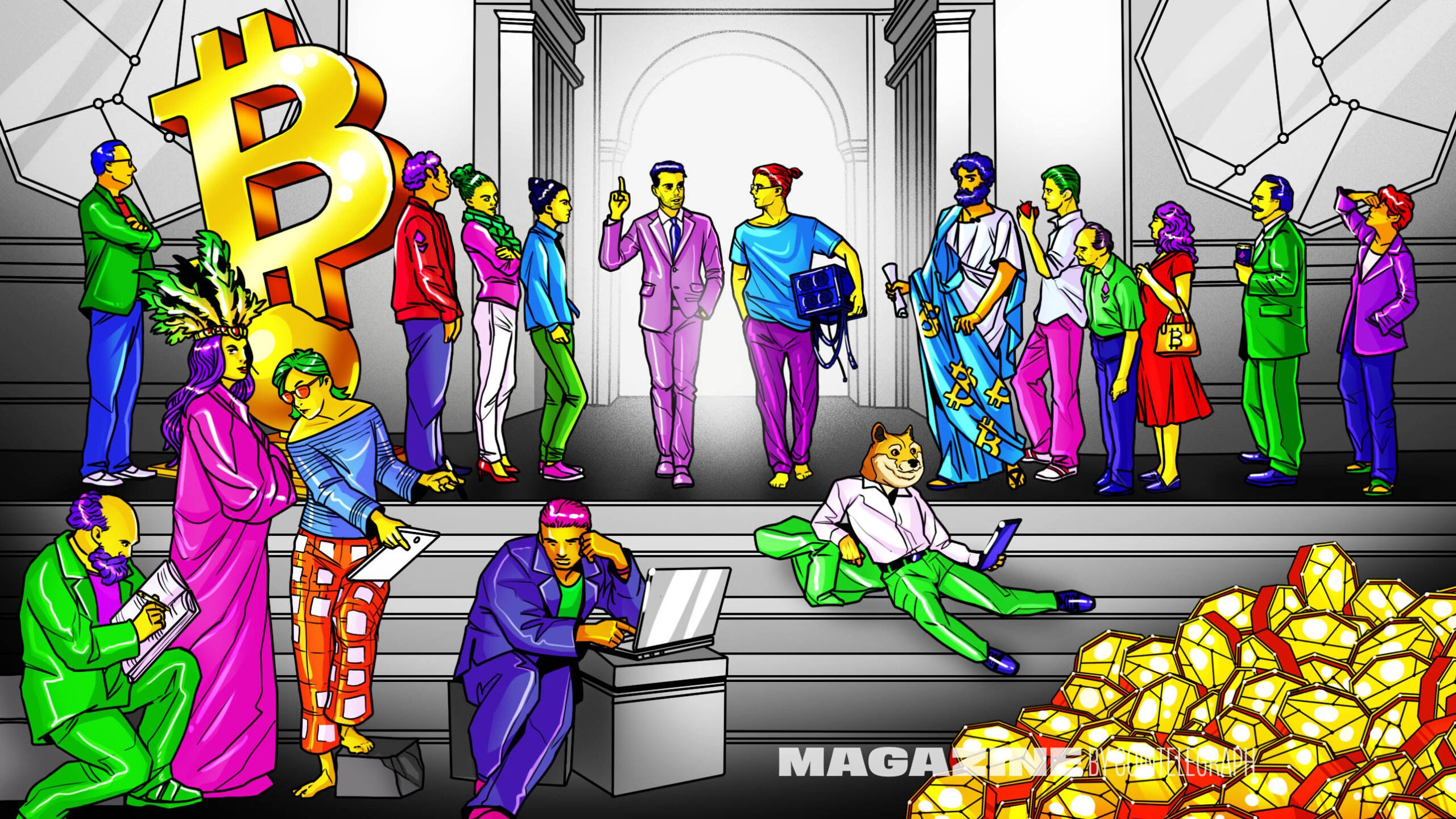BitCulture explores arts, culture, music and media in blockchain and Web3. Fine art on the blockchain Exchange.art head curator H
BitCulture explores arts, culture, music and media in blockchain and Web3.
Fine art on the blockchain
Exchange.art head curator Haley Karren came to Web3 from some of the world’s leading art institutions and says that working with 14,000 artists on Solana’s fine art marketplace has broadened her tastes.

“I have a new appreciation for pixel art, voxels and things that really are very much native to this space. It’s been fascinating to see the difference between what I was more interested in two years ago and what I’m interested in now.”
Formerly a curator at New York’s Museum of Modern Art and the Peggy Guggenheim Collection in Venice, Karren says her role has always been as a “conduit” between contemporary artists and the rest of the world. Even more so now that she’s connecting traditional artists to a space that utilizes blockchain, NFTs and artificial intelligence.
“Digital art and traditional art spaces are moving together more and more. That’s a big push for us at Exchange.art, but there is still a little bit of a divide,” she says.
“There’s just a little bit of a bias against the blockchain in a sense, and I think it’s a little bit of not understanding it.”
She says often, collectors are unaware that the blockchain can be used for provenance, and artists don’t realize that NFTs can be programmed to collect royalties each time a piece is sold.
“It’s shifting some established norms in the art world that didn’t give artists enough ownership over their work,” she says.
“I try to help onboard people as well as artists or traditional art collectors. It is a process, you know, understanding what crypto is, understanding what a wallet is.”
In the traditional art world, galleries are the gatekeepers. For artists to sell works, galleries need to display them for buyers, taking commissions of up to 50% for doing so.
NFTs help replace these gatekeepers, giving control back to artists.
“It’s a huge shift in terms of sovereignty and shifting it back toward artists. It places much more responsibility on them to also market their work, to talk about their work and to present it coherently.”

Karren sees her current role as a “sounding board” for artists to think through how a series should be presented, and put out in the world, how many, how often, in which order?
One such artist Karren highlighted is Lisanne Haack and her “Synergy” series (pictured left). Haack is a digital painter who creates in a style that resembles oil painting, as well as charcoal and pastels.
“In a fascinating departure from physical art, she varies the texture of the support between canvas and paper,” Karren explains, adding that digital tools enable Haack to cut, paste, rework and repeat sections to create digital pieces of fine art.
Emerging trends in the space include artists “working with different AI programs and incorporating it into their creative process to then push themselves in a way that they wouldn’t have been challenged previously.”
She also points to conceptual art being put on the blockchain directly, as well as the emergence of illustration as a fine art.
“Finally, in this space, it has been given its due. It’s been fascinating to watch and learn more about this art form that has a long history and has not been considered a fine art form in the traditional art world.”
Musicians vs AI
AI has been causing a stir across the world with its ability to remix and create “new” works based on existing artists. Musicians and major record labels have taken wildly varying stances on this.
Dance/electronica musician Grimes was a trailblazer, offering to split 50% of the royalties with any “successful” AI-generated song that uses her voice. She said she finds it “cool to be fused with a machine” and is in favor of “open sourcing all art and killing copyright.”
I’ll split 50% royalties on any successful AI generated song that uses my voice. Same deal as I would with any artist i collab with. Feel free to use my voice without penalty. I have no label and no legal bindings. pic.twitter.com/KIY60B5uqt
— 𝔊𝔯𝔦𝔪𝔢𝔰 (@Grimezsz) April 24, 2023
But rapper Ice Cube, who rose to fame in the late 80s with N.W.A., said in a recent interview he would sue anyone producing AI tracks mimicking his voice and any platform that offers the track.
“It’s like a sample. Somebody can’t take your original voice and manipulate it without having to pay. I think AI is demonic, I think AI is going to get a backlash from organic people.”
Universal Music Group famously ordered streaming services like Spotify to ban AI from being able to train…
cointelegraph.com
